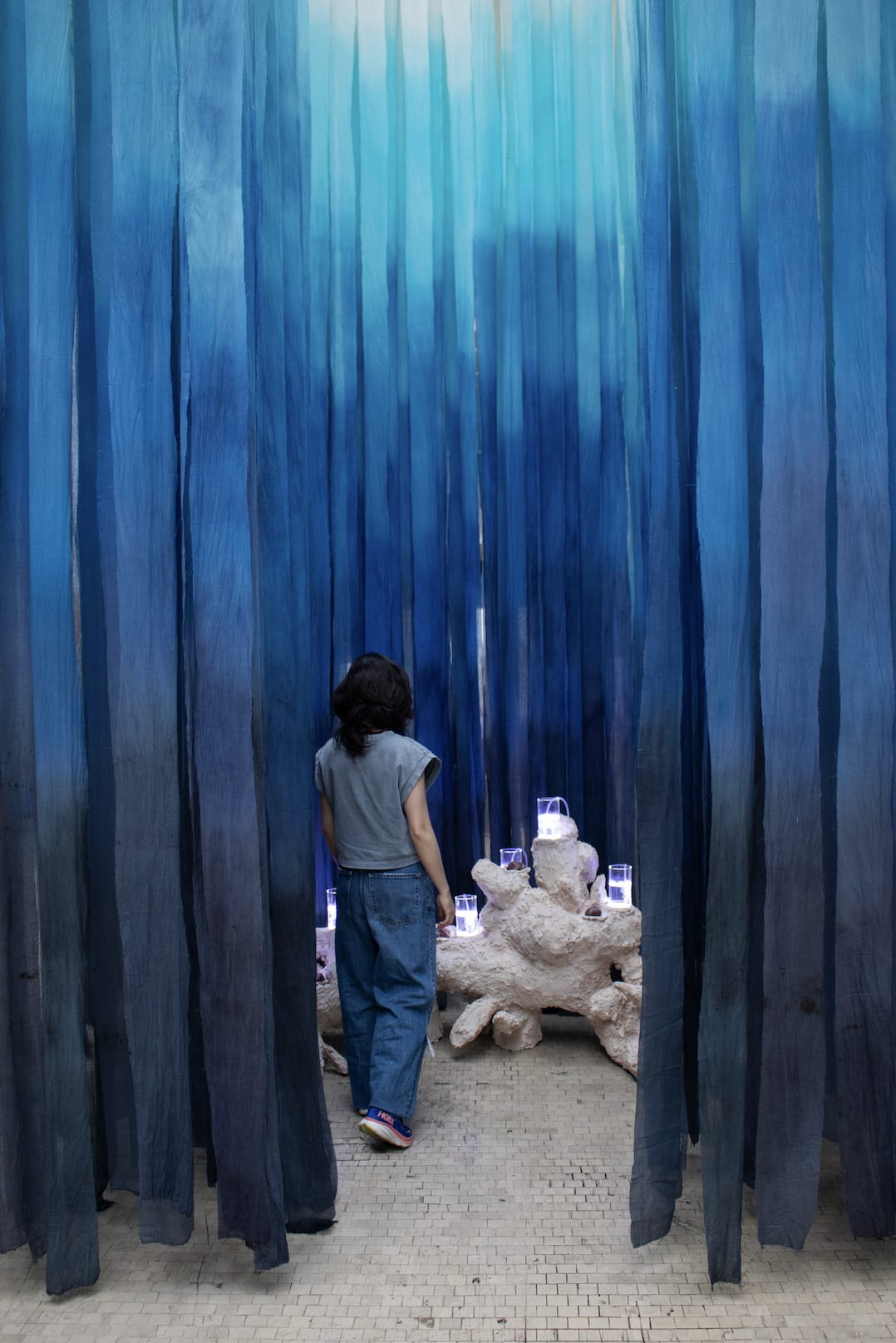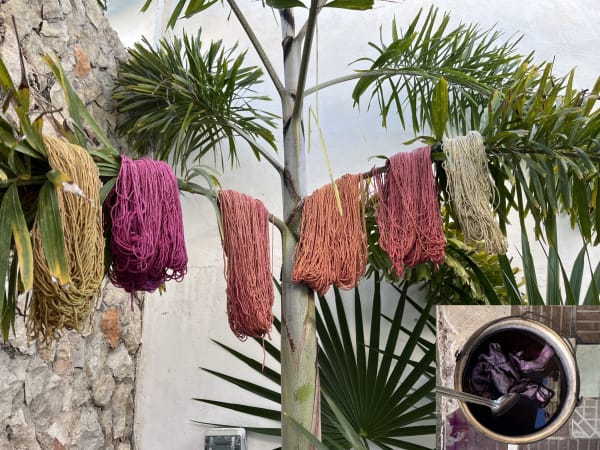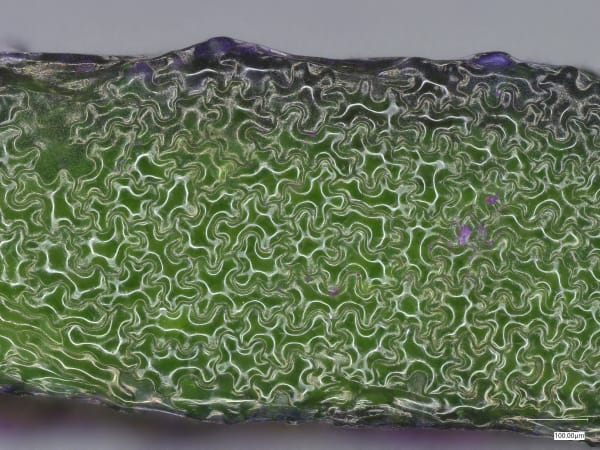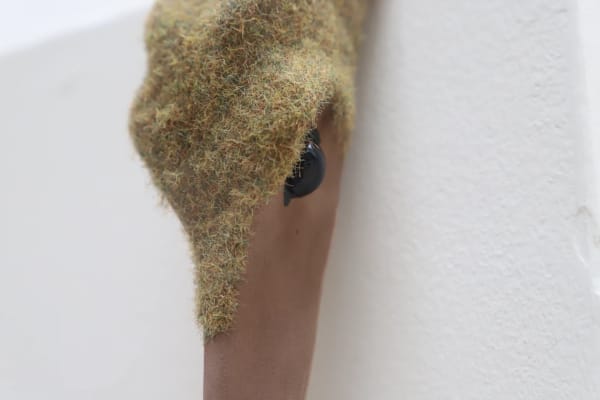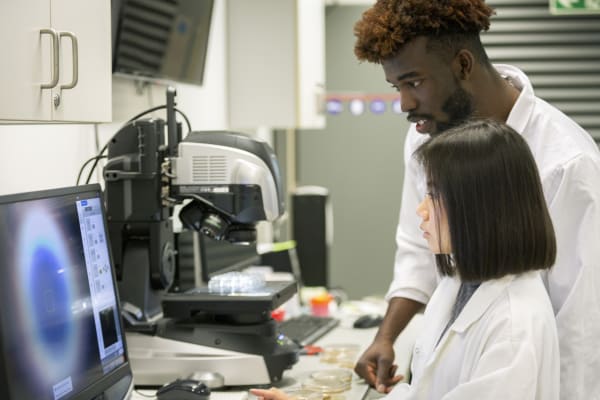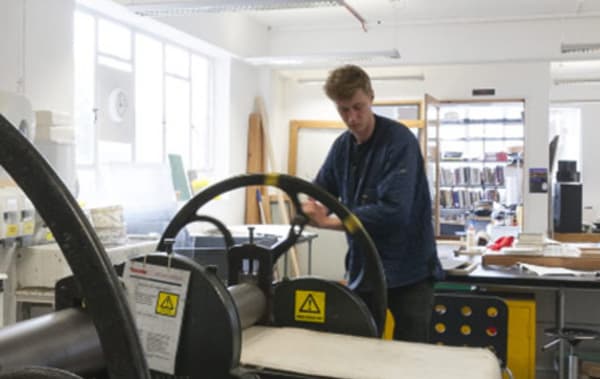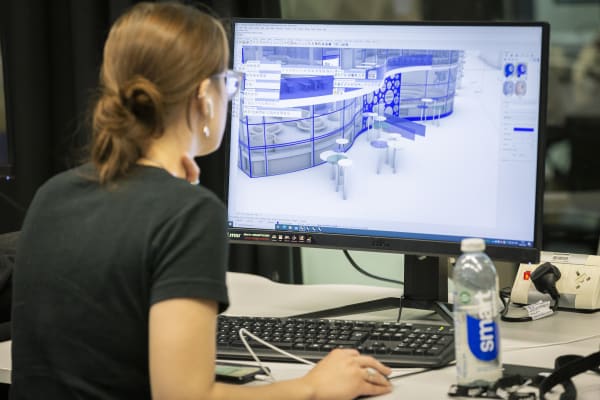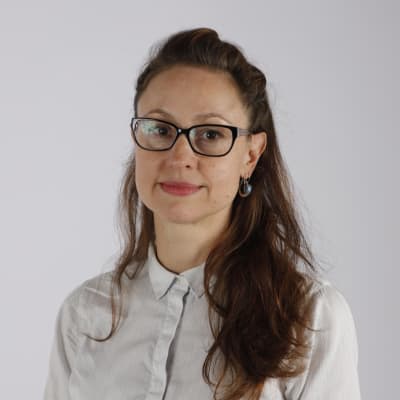Course units
MA Art and Science supports the development of your practice, through production and ongoing critical evaluation. The course is structured around 4 Assessed Units which are supported by a series of teaching events, including personal tutorials, seminars, workshops, group crits and external events. The units explore key ideas and critical issues and involve a range of specialist staff.
Project-work is introduced during Unit 1 to support the development of your independent practice, by helping you to structure and manage your work and to articulate your concerns as they change and develop. Year 1 is more intensively taught and includes introductions to key workshops. Year 2 continues with a combination of taught and more independent study as you further develop and realise your research and practice.
Unit 1: Enquiry Through Interdisciplinary Practice
In this unit, through a series of projects and experimentation, you will explore emerging discourses in art and science, complemented by practical workshops and introduction to cultural venues and collections relevant to art and science. Teaching is delivered through discursive seminars, lectures, workshops and group and individual projects. These provide a critical context for your research and practice and address different approaches to research methods and to making.
Unit 2: The Collaborative Unit
This unit provides opportunities for cross-course creative and collaborative practices in relation to global challenges. The unit explores a range of thematic, experimental, and applied approaches to cross-disciplinary research, enquiry, and knowledge exchange. The aim is to establish a framework for co-operation and social responsibility across the College in relation to our shared values.
Unit 3: Independent Project: Developing Interdisciplinary Practice
Unit 3 explores the relationship between research and practice. You will conduct a focused investigation into a self-identified area of enquiry, leading to a research paper, the development of practical artwork and a proposed study plan for Unit 4.
In this unit you will build a body of knowledge to support your area of enquiry and outline a critical context in which to situate your practice. Intentions will be articulated for the future direction of a body of resolved work.
Progress is supported through tutorials, critiques, seminars, external visits, and student-directed group discussions. You will have a personal academic tutor who will guide the progress of your focused research. Sessions are designed to support experimentation and reflection, helping to set the agenda for your work in Unit 4.
Unit 4: Independent Project: Realising Interdisciplinary Practice
In the final unit, you will be supported in the production of a body of self-directed work building on developments from previous units. You will engage audiences through diverse means of public dissemination and presentation. Seminars relating to continuing professional practice will offer guidance for your future development post graduation. Tutorials will enable you to review progress toward achieving your goals. This unit asks you to consider different forms of dissemination for your work and includes the possibility of collaborating with students or others to prepare and curate your work for presentation and a public audience in the Showcase.
Teaching Events
Personal Tutorials are a chance for you to share your ongoing developments and plans, and receive direct feedback from the tutor.
Group Crits are an important opportunity for you to share and critique your developing work with peers and tutors and to test the work physically in the studio.
Lecture and Seminar Programmes take place throughout the course and help contextualise and broaden your practice and its contextual references. Postgraduate lectures offer the opportunity for all members of the MA-level Art programme to meet for debate and engage with contemporary issues that are shared by all disciplines. Additionally, Art programme-wide lectures are delivered by guest artists.
Open Studios are an opportunity for students to share their work-in-progress in the studios with other courses and an external public. The Open Studio is a small publicly facing event, focusing on the development of your work, and developing self-organisational skills.
Workshops and technical inductions help introduce you to the core creative workshop facilities available in college, including The Grow Lab: a Containment Level 1 biology laboratory focused on sterile work, microbiology and microscopy relating to art and design. Alongside inductions arranged by the course, you are encouraged to independently engage with technical spaces where additional support is often available at a local level.
Independent and collective working. An important emphasis of the course is self-organisation and co-operative working. As you develop more independence over the course, you will also have opportunities to engage with a variety of projects or practices that involve a level of co-operation and collective working.
Exhibitions and public facing events. There are a number of publicly facing exhibitions and events during the two years. These opportunities bring together students from across the Central Saint Martin’s postgraduate Art programme and include the Interim Show (Year 1), Editions (Year 2), and the Showcase (Year 2). These events depend on students’ collective participation.
-
Interim Show provides you with opportunities for sharing practice and experience with the broader post-graduate community across the art programme. It creates an opportunity to test your ideas outside of the studio context and consider audience engagement with your developing work.
-
Editions is an annually changing public-facing event which gives you direct experience of commercial enterprise. Based on the format of an edition, each student will produce a number of prints which will be for sale. All second-year students contribute to the preparation and running of the event. Proceeds contribute to further student Showcase activities.
-
Showcase takes place at the end of the course and is an opportunity to show your work publicly. The exact format and location is determined each year.
Optional opportunities: Throughout the course there may be elective and/or mandatory projects that arise, providing you with additional opportunities to expand and develop your practice. Previous examples have included international projects, external exhibitions and publications, interdisciplinary partnerships, and site-specific events in both real and virtual environments.
Students are also encouraged to independently engage with opportunities for further collaborations, project work, exhibitions, and research outside of the course, programme, or college, but must however inform their tutor and Course Leader and ensure it does not affect their ability to engage with the course.
Library Access: You have access to all 8 UAL libraries, each with unique and distinct collections. Check opening hours for each campus library online.
ASK online library chat is the best way to get help from the library and learning zone quickly. Any queries that can’t be immediately answered by the wider library team will be forwarded on to your course librarian.
Need help getting started with research? The Fine Art and Bio/Art Design subject guides can direct you to relevant print and e-resources.
Your librarian can support you in your research and purchase books for your course. Contact your librarian here.
For information on materials research, as well as tours, tutorials and consultations of the Materials and Products Collections, please consult our dedicated subject guide.
Important note concerning academic progression through your course:
If you are required to retake a unit you will need to cease further study on the course until you have passed the unit concerned. Once you have successfully passed this unit, you will be able to proceed onto the next unit. Retaking a unit might require you to take time out of study, which could affect other things such as student loans or the visa status for international students.
CSM Academic Support is delivered by a team of academics and practitioners working alongside your course to help you progress and achieve your maximum potential as a student. Academic Support can help you to develop your skills in different areas, including critical thinking, research and writing, time management, presentations and working independently and collaboratively. These may be offered as part of your timetabled classes or as bookable tutorials and workshops.
Mode of study
MA Art and Science is offered in extended full-time mode which runs for 60 weeks over two academic years. You will be expected to commit 30 hours per week to study, which includes teaching time and independent study.
Year 1 is more intensively taught, including introductions to technical workshops.
Year 2 continues with a combination of taught and increased independent study time as you develop and realise your research and practice.
The course has been designed in this way to enable you to pursue studies, while also undertaking part-time employment, internships, or care responsibilities.
Credit and award requirements
The course is credit-rated at 180 credits.
On successfully completing the course, you will gain a Master of Arts (MA degree).
Under the Framework for Higher Education Qualifications, an MA is Level 7. All units must be passed in order to achieve the MA but the classification of the award is derived from the marks for the third and fourth units.
If you are unable to continue on the course, a Postgraduate Certificate (PG Cert) will normally be offered following the successful completion of 60 credits, or a Postgraduate Diploma (PG Dip) following the successful completion of 120 credits.







